Heating Mercedes Vito (air conditioning) and ventilation in manual mode is carried out by pressing and turning the corresponding switches and regulators.
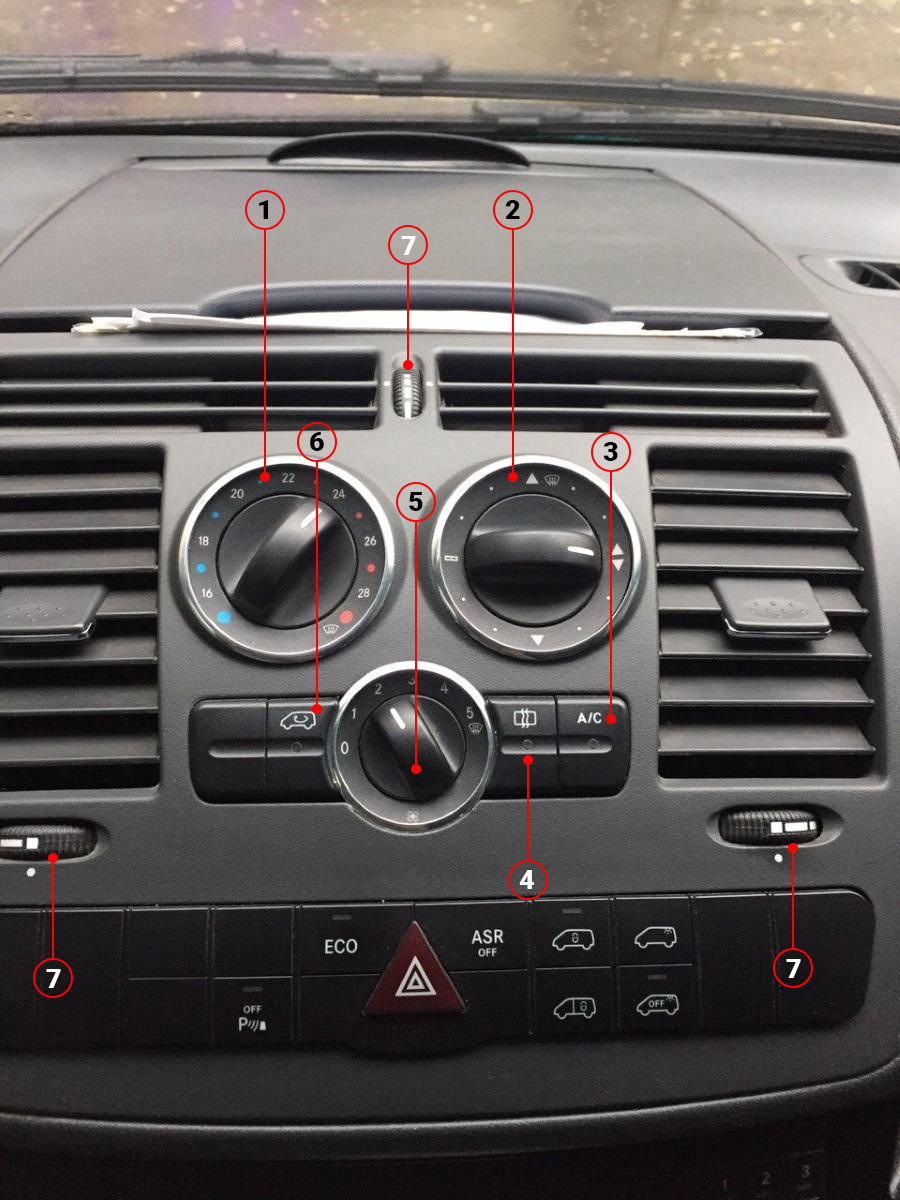
Mercedes Vito heating system:
1 - Temperature control.
2 – Air distribution adjustment.
3 - Economy mode / mode of using the residual heat of the air.
4 - Air dehumidification.
5 - Air supply adjustment.
6 - Air recirculation.
7 - Nozzle adjusting wheel.
The car is equipped with an activated carbon filter that traps dust particles, pollen and odors from the outside air entering the car interior. The filter replacement interval depends on the influence of the environment, such as heavily polluted air. Replacing the cabin filter is described in this article .
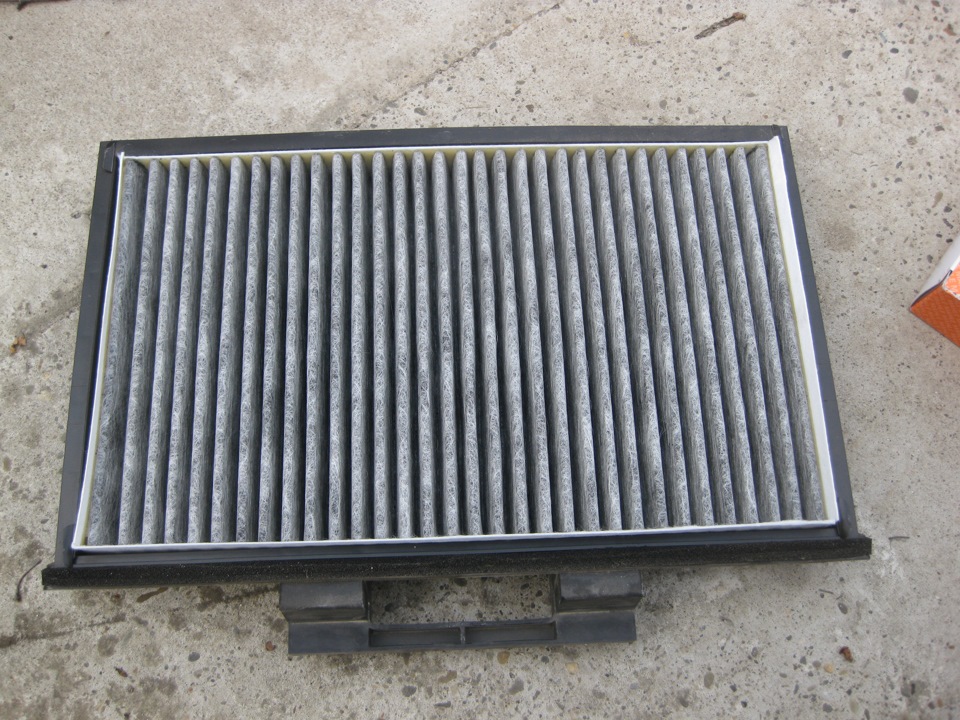
cabin filter
WARNING:
If the interior of the car is very hot from the sun, ventilate the car before driving. Keep the air intake slots between the hood and windshield clear of snow. To direct the ventilating air flow through the entire passenger compartment, set the sliding handles of the middle nozzles to the middle position.
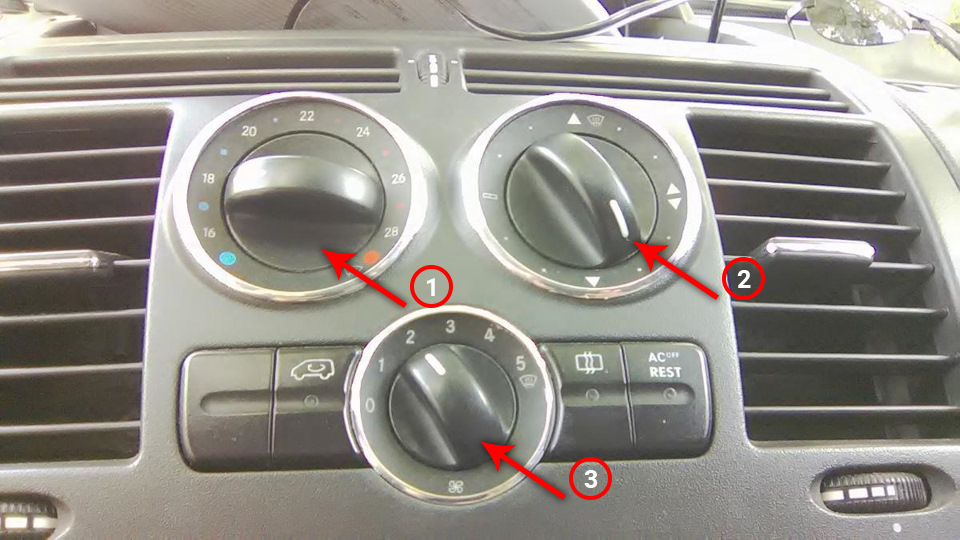
1 - Temperature controller.
2 - Air distribution regulator.
3 - Air supply regulator.
Basic heating settings:
Set the temperature control ( 1 ) to the desired position, but not less than as indicated by the arrow ( 2 ).
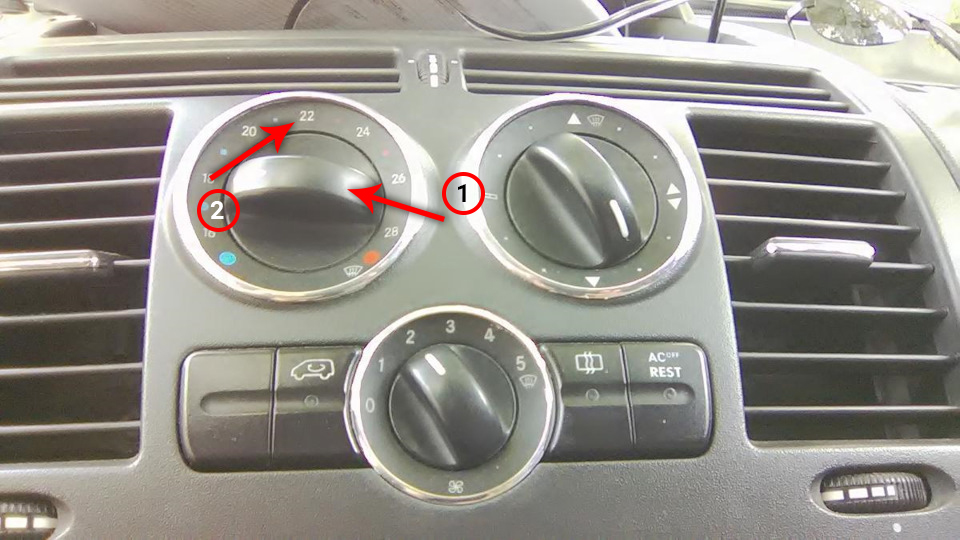
Cabin air temperature control
Note:
The temperature is controlled by means of a temperature controller. Change the temperature only gradually.
Boost:
Turn the temperature control ( 1 ) slightly to the right.
Downgrade:
Turn the temperature control ( 1 ) slightly to the left.
Set the air supply regulator ( 3 ) to the desired position, but not less than that shown by the arrow ( 4 ).
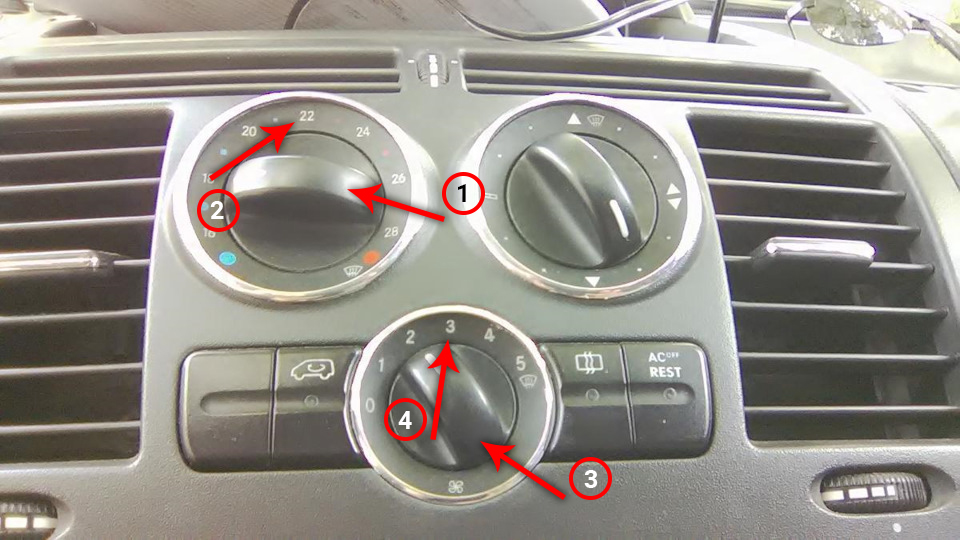
Adjusting the air supply to the passenger compartment
Note:
The amount of air supplied to the entire vehicle interior is adjusted by the air supply quantity regulator ( 3 ).
The symbols on the switch mean the following:
0 - No fan.
1-5 - Ventilation by means of a fan.
Set the air distribution regulator ( 5 ) to the position shown by the arrow ( 6 ). Close the middle nozzles. Open the side nozzles half way and aim them at the side windows.
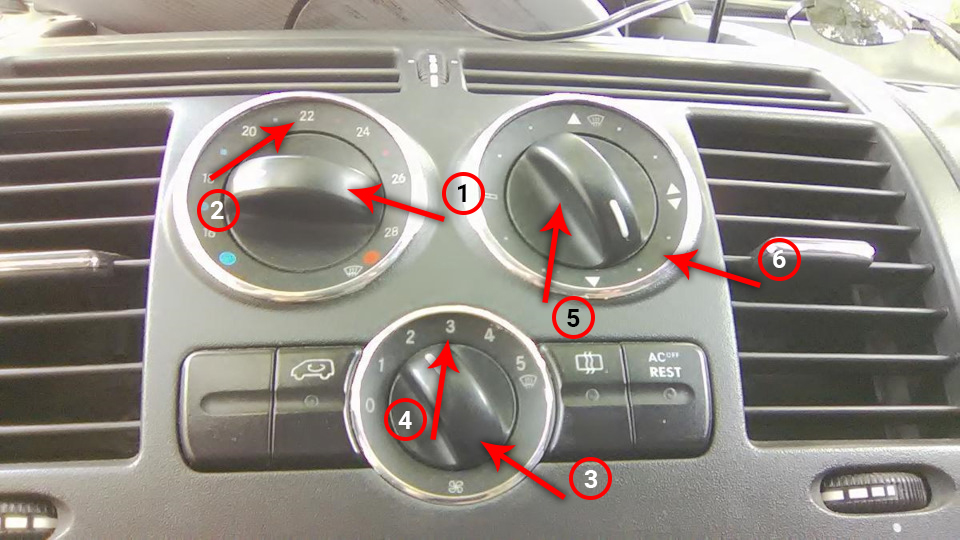
Cabin air distribution adjustment
Note:
Distribute the supplied air using the air distribution regulator for the entire passenger compartment.
The symbols on the switch mean the following:
Left symbol:
– Directs air to the ventilation nozzles.
Top character:
– Directs air towards the windshield.
– Directs air to the ventilation nozzles.
Right symbol:
– Directs air towards the windshield.
– Directs air to the ventilation nozzles.
- Directs air into the footwell.
Lower character:
– Directs air to the ventilation nozzles.
- Directs air into the footwell.
Basic interior ventilation settings:
Turn the temperature regulator ( 1 ) to the left as far as it will go ( 2 ).
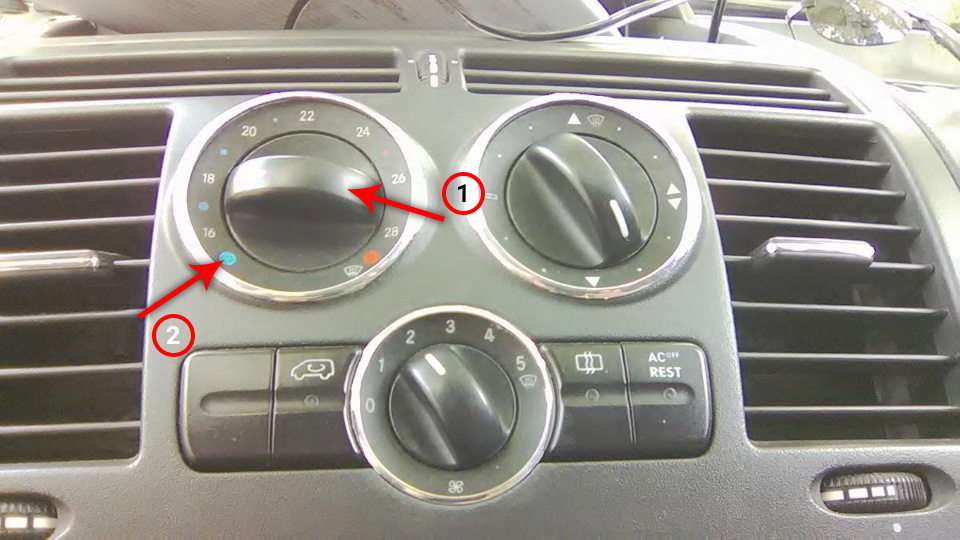
Temperature controller for interior ventilation
Set the air supply regulator ( 3 ) to the desired value, but not less than shown by the arrow ( 4 ).
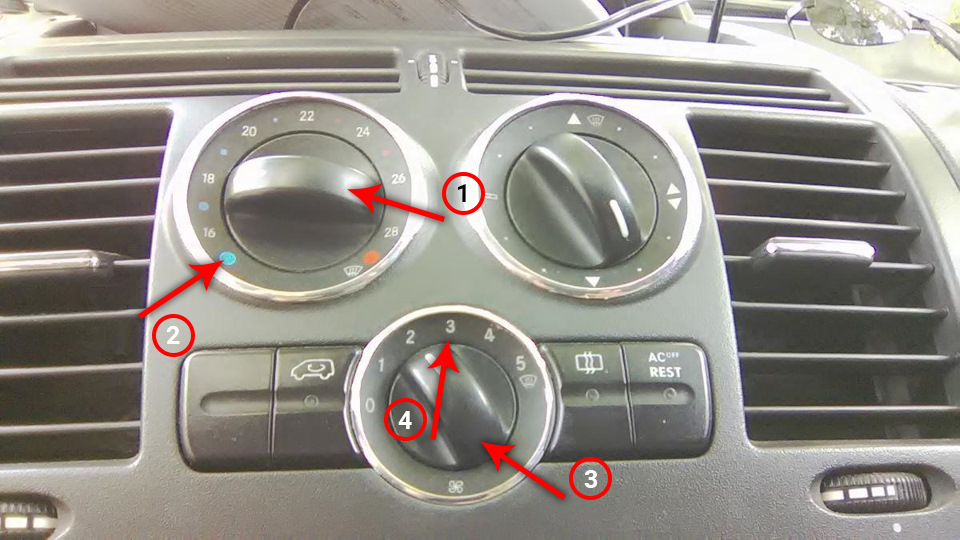
Cabin air regulator
Install the air distribution regulator ( 5 ) as shown by the arrow ( 6 ). If necessary, open the middle, side and ventilation nozzles.
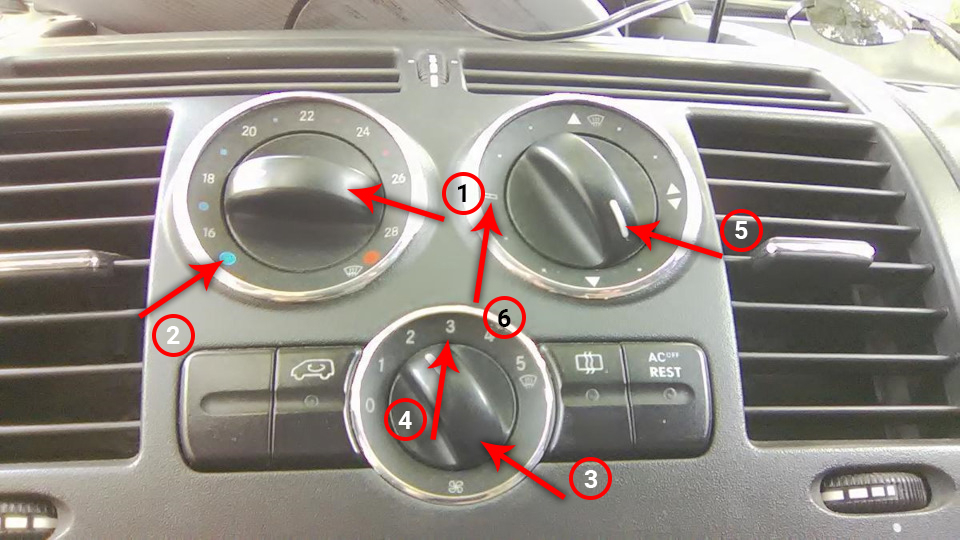
Air distribution controller for interior ventilation
Air recirculation mode:
If unpleasant odors and dust enter the passenger compartment from the outside, you can temporarily turn off the fresh air supply. In this case, fresh air is no longer taken in, but instead the air in the passenger compartment is recirculated.
WARNING:
Switch on the air recirculation mode only briefly. The fogging of the windows leads to a deterioration in visibility, which increases the risk of an accident. Otherwise, the air quality may deteriorate, the windows may fog up and poor visibility may result in danger to you and other road users.
The air recirculation button is located on the heating control panel. Press the button and the control lamp in the button will light up (recirculation is on). Press the button again and the control lamp goes out (recirculation off).
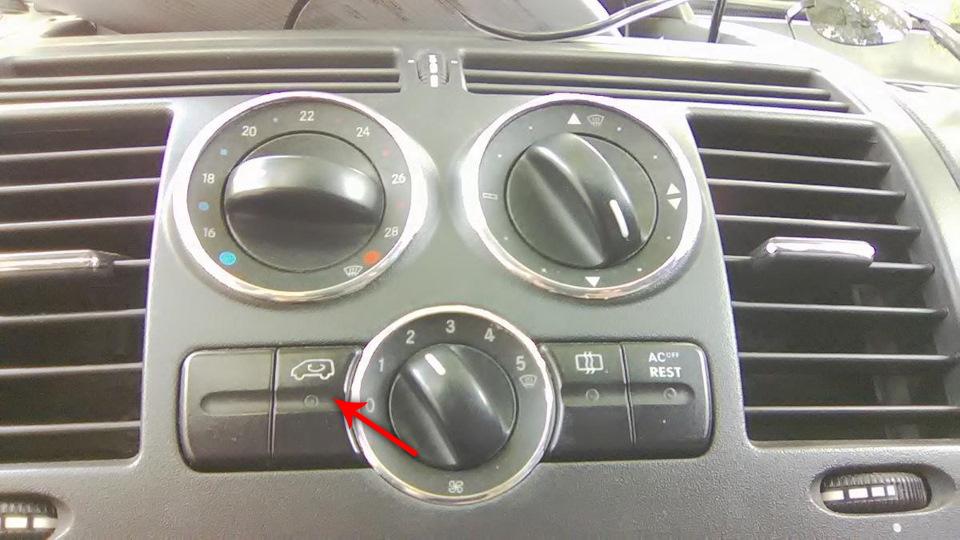
Air recirculation button
The vehicle is equipped with the Tempatic system:
The tempatic system is ready for operation with the engine running. The system can be controlled automatically or manually.
Depending on the selected temperature and the outdoor temperature, either heating or cooling is performed.
The car is equipped with an activated carbon filter that traps dust particles, pollen and odors from the outside air entering the car interior. The filter replacement interval depends on the influence of the environment, such as heavily polluted air. Replacing the cabin filter is described in this article .
Note:
Condensation may accumulate under the vehicle.
In economy mode, neither cooling nor dehumidification is performed. Select this mode only for a short time. Otherwise, the windows may fog up.
Shutdown:
To turn it on, press the AC off button and the control lamp in the button lights up.
Turning on:
To turn it on, press the AC off button and the control lamp in the button goes out.
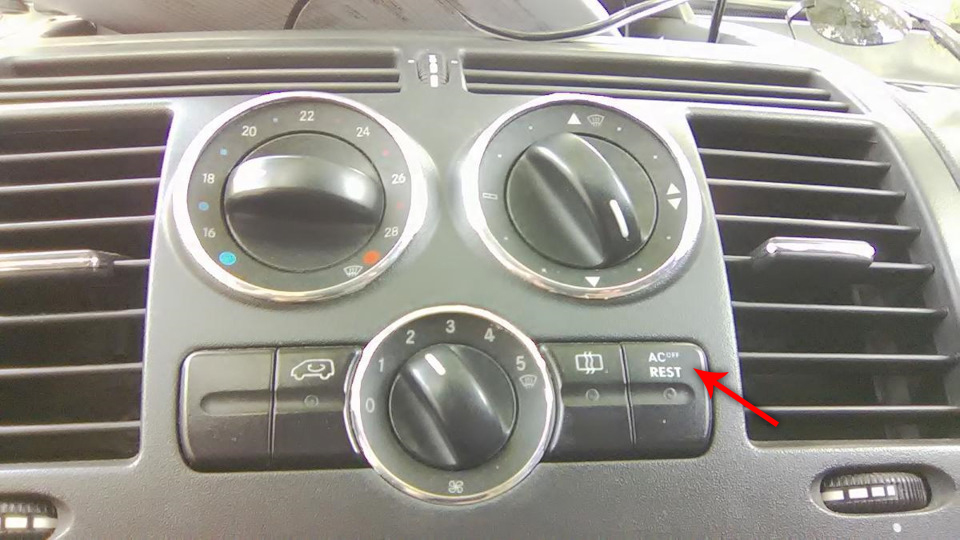
AC off button
Residual engine heat:
After a long drive, the Mercedes Vito 639 engine radiates residual heat. You can use this residual engine heat in the car.
Note:
The duration of heating depends on the coolant temperature and the selected passenger compartment temperature. Regardless of the position of the air flow regulator, the fan operates at stage 1.
To switch on residual motor heat:
1. Turn the ignition key to position 0 or remove it.
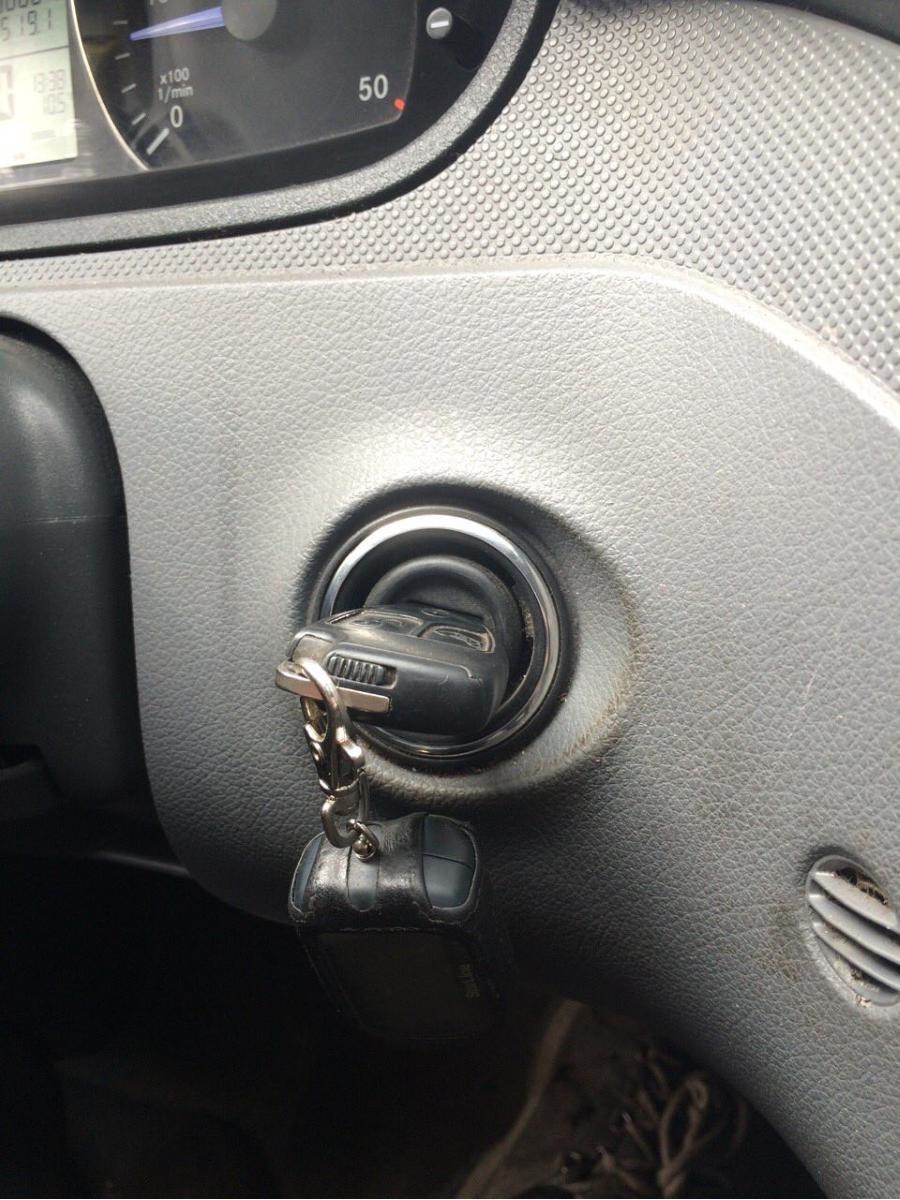
Mercedes Vito key in the ignition in the zero position
2. Adjust according to your needs:
– Temperature.
– Air distribution.
– Air nozzles.
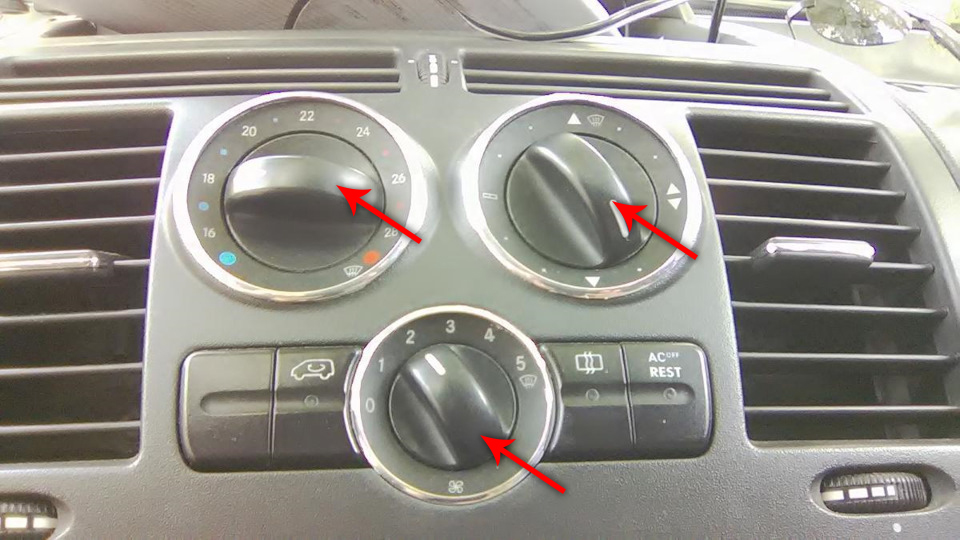
3. Press the REST button and the pilot lamp in the button will light up.
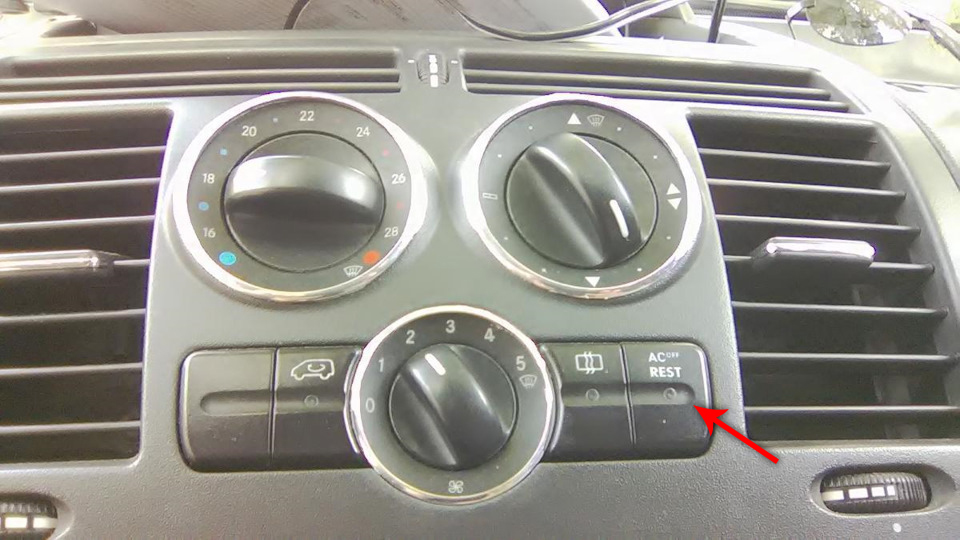
To turn off residual engine heat:
1. Press the REST button and the indicator lamp in the button will turn off.
Note:
Residual engine heat mode is automatically deactivated after approximately 30 minutes:
– If you turn the key to position 1 or 2.
– If the battery voltage drops.
Source: carpedia.club
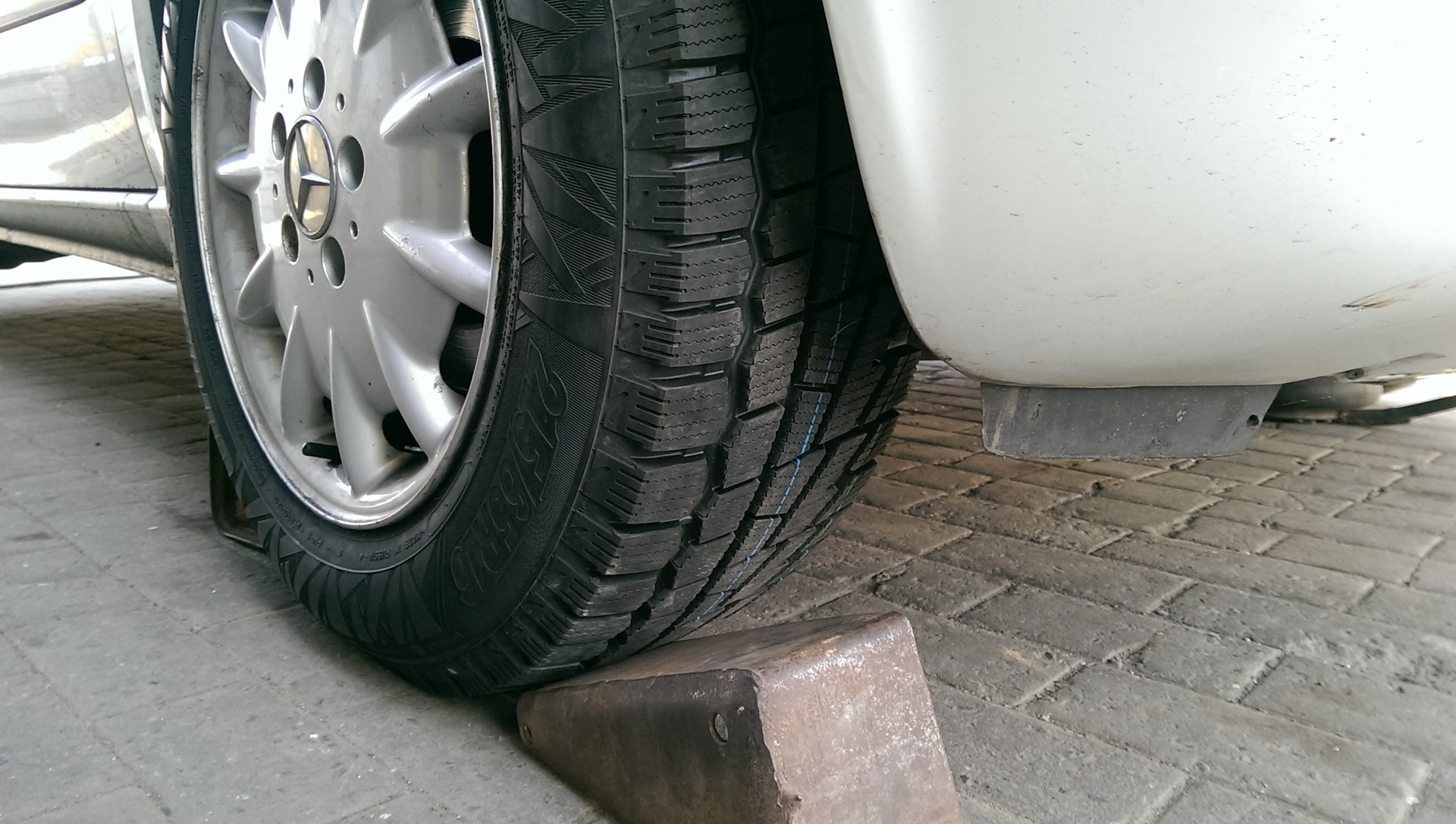
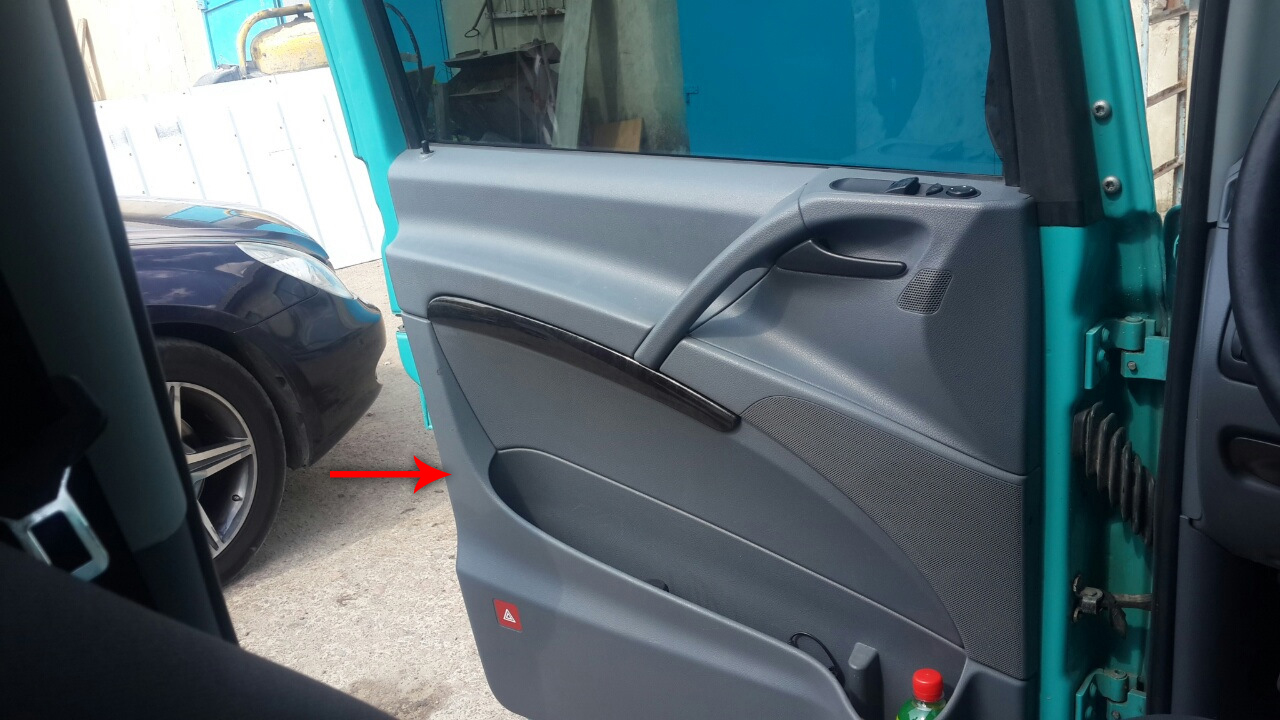
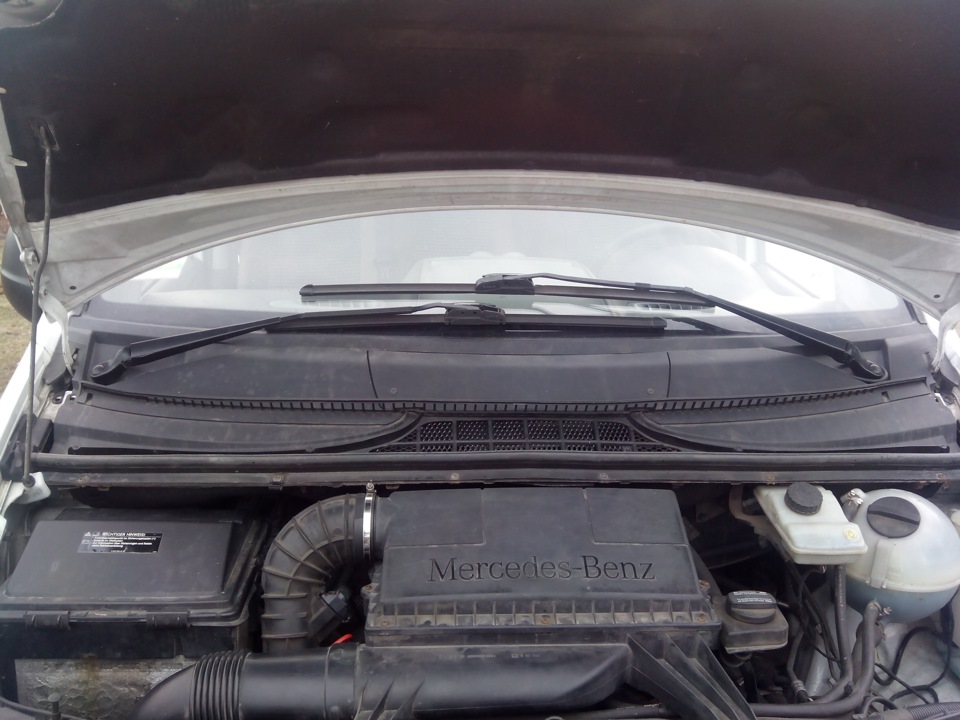
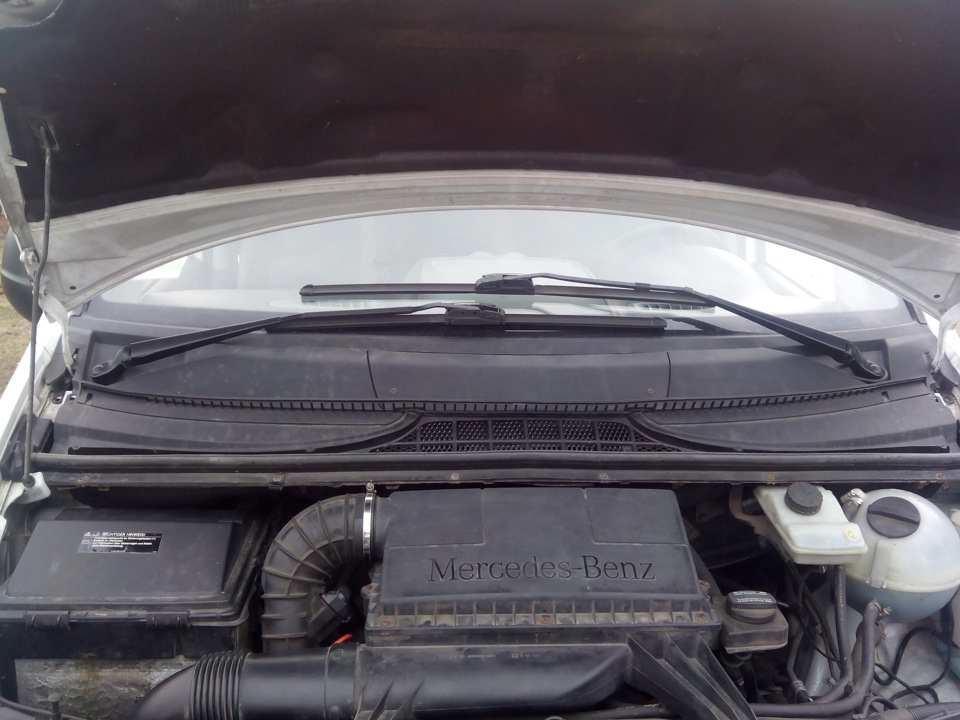
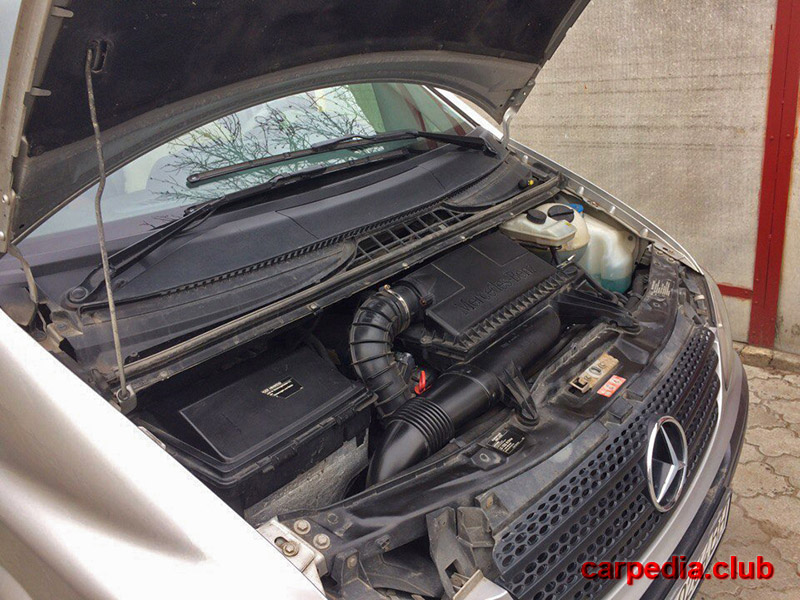
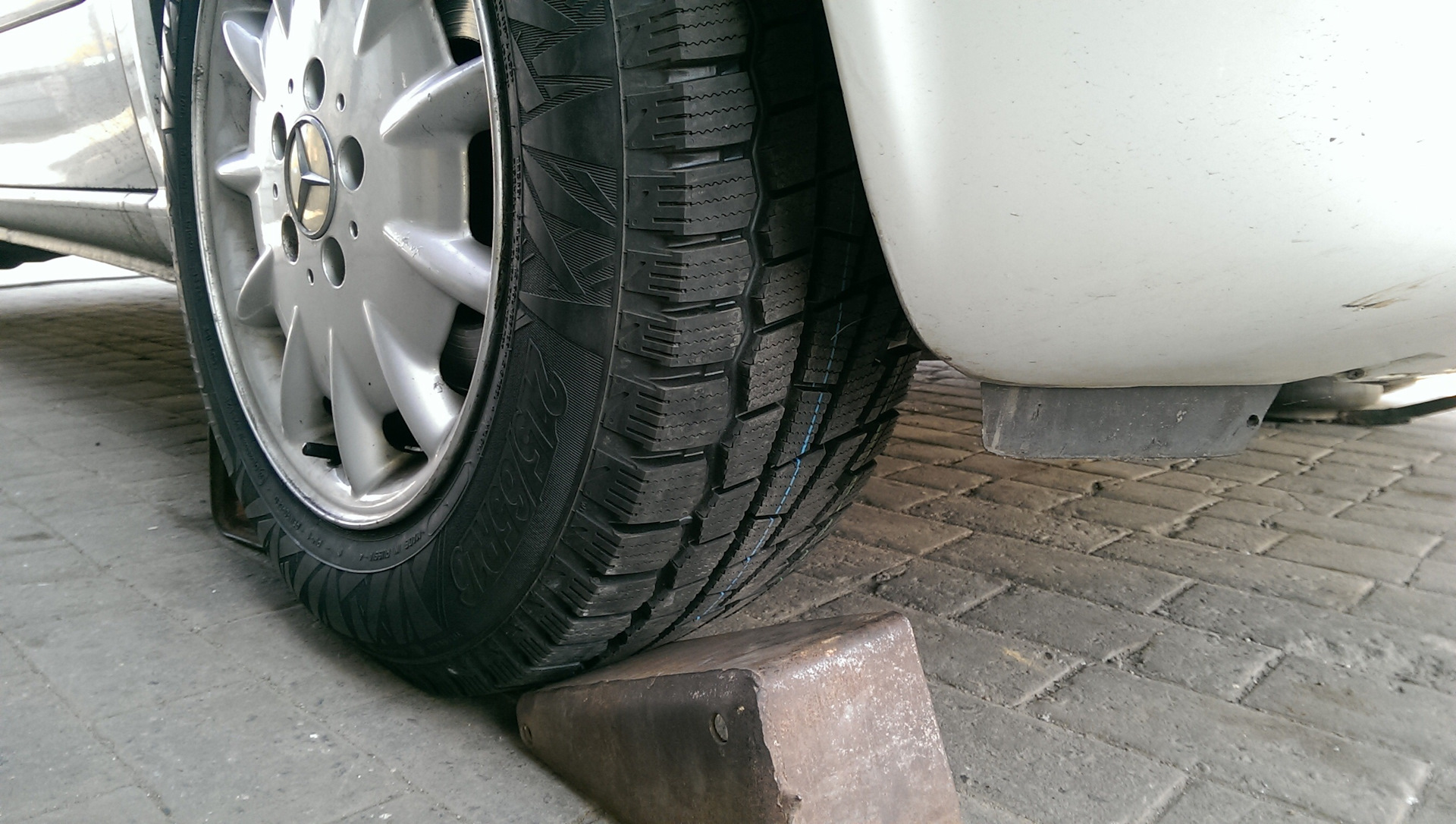
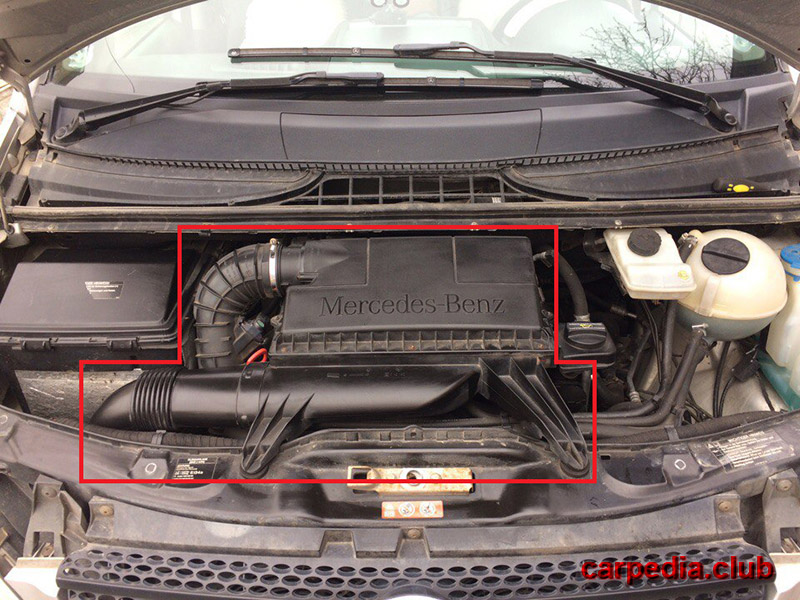
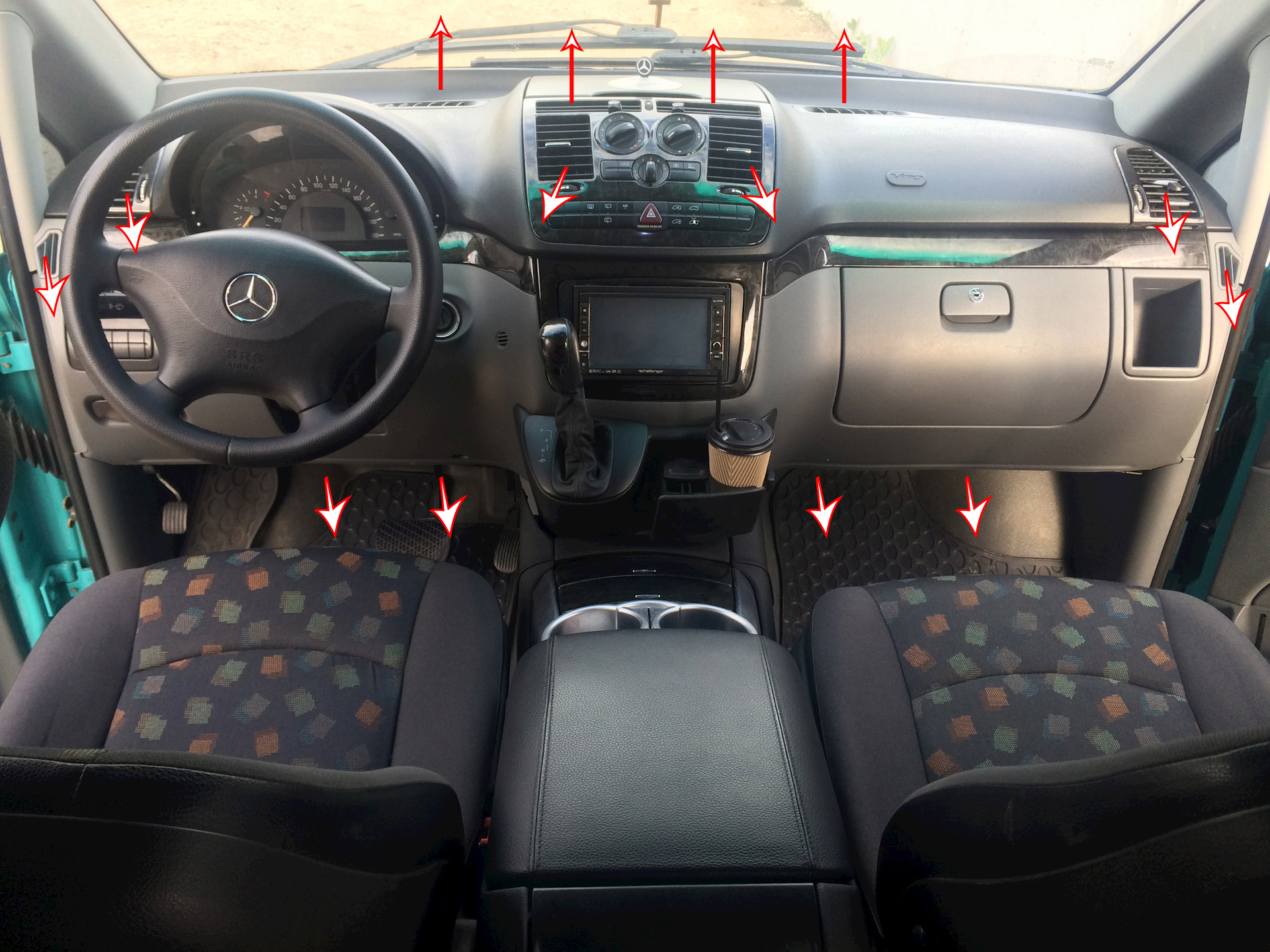
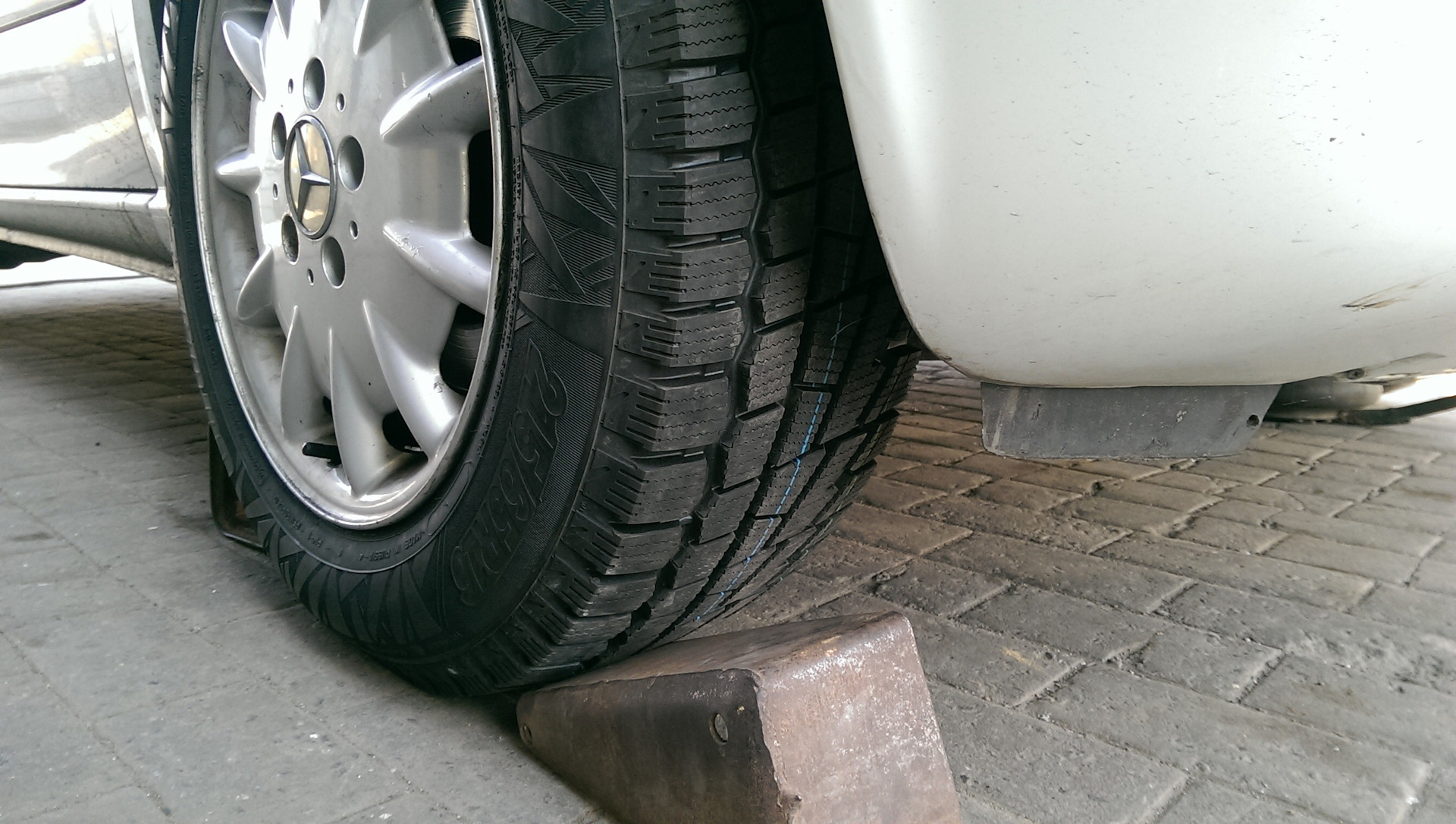
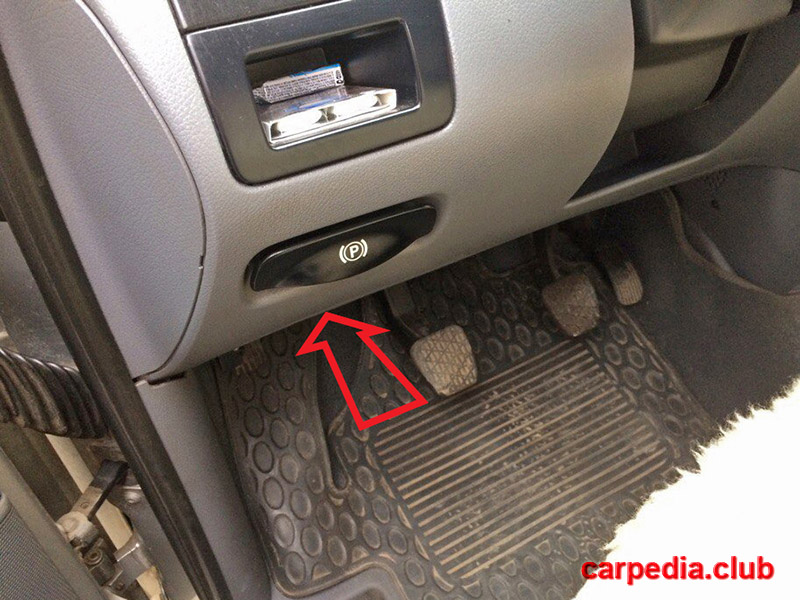
![W638 [1996 - 2003]](/uploads/Mercedes-Benz_Vito_I_W638_1996_-_2003_.jpg)
![W639 [2003 - 2010]](/uploads/Mercedes-Benz_Vito_2013.jpg)